The journal has always been important to me, for all the reasons above, and it was one of the first things I wrote about. After a whole year, I felt I had to revisit it, and this is the result. I think, in a way, all my RM articles are, in their way, tribute diaries, but public ones.-jessegirl-
On the surface we see Tyler Hawkins—played brilliantly by Robert Pattinson—as a rebellious, spoiled guy, who smokes, drinks, parties and sleeps around, a guy who doesn’t seem to care about anything, who is prone to fist fights and destructive behaviour. And that is a view held by some viewers who haven’t bothered to delve deeper. Underneath that though, is someone struggling with long-standing trauma and grief, a young man filled with doubts, fear and insecurity. He is a lost soul trying valiantly to find his way back to a meaningful life. How do we know this? Largely, the key to discovering Tyler’s character is through his journal.
The journal started—one assumes—as a way of coping with the loss of his brother. Paradoxically, the journal is a way of bringing Michael’s death closer, in order to learn what Tyler can from it, and also a way of distancing Tyler from the horror of the death. A fourteen year old boy is traumatized by finding the body of his brother, especially the factually horrific specifics seen as a result of a hanging suicide. Writing deflects from those grotesque forensic details. Through the process of writing, the trauma is subdued, muted.
Loss provokes introspection, which, in turn, uses the written word to acknowledge what cannot be spoken. One must, after the death of a loved one, communicate with that one, and with oneself. If one has an artistic outlet, music or visual art, which might be the route one takes, to express the inexpressible. But for those with few skills in those areas, words must do, must be enough. And so, Tyler ‘talks’ to Michael. He ‘journals’.
Tyler needs the journal, to process his loss, to ponder and help him understand, and ultimately forgive Michael. The journal is the way to make the journey. Grief is a journey.
Tyler has to find Michael there and like any seeker in the place of the dead, Tyler is afraid. He knows only that he must find his brother, rail against him, question him, find answers, cry for him, love him and forgive him. Tyler knows all that and it is extremely daunting work. It is the great unknown, and Tyler goes there fearing only that he might not be able to return. And it is excruciating work, like cutting an open wound, exposing his worst terrors. Tyler goes anyway. He has to. He is compelled. He must ferry himself down into the depths of his soul, explore, find answers or some resolution, and then come back up again. Or die. It is exactly that significant. It is a matter of life and death. And when, or if, he returns, he will be transformed. Nothing short of that will allow Tyler to return and engage in ‘real life’ again. The journal is his tool, his pen the pick axe which will excavate these inner recesses of his soul so that he can bring them to light.
Combat
When someone kills himself, we always ask, ‘why?’. We think about how much he had going for him. For Michael, it could have been: young, smart, talented, rich. Then we shake our heads, perplexed. But the outside is never the inside and Tyler is trying to figure out what was inside. What made Michael think life was not worth living? And was he right? If not, then what makes life worth living? Existential doubts and questions abound. Michael gave in to despair, gave in to his Dad.
But Tyler fights. He figures himself out through the journal. It is part of his fight, his internal battle, just as his argument with Charles in the boardroom is his outer fight, his attempt to find hope. Tyler tests himself against his Dad all the time, sometimes with foolish, self-righteous bravado and other times just to establish his own identity (‘I don’t want you to bail me out.’)
So the role of the journal has mutated, become a way of discovering his identity. Tyler asks: ‘Who am I?’ He fights to separate himself from his brother and his father. Part of the battle is expressing his anger to Michael. ‘Why did you abandon me?’ ‘Why didn’t you stick around for me?’ Admitting the anger verbally is taboo so his feelings are expressed in the diary. Tyler fights for identity, meaning and understanding.
Comfort
Have you noticed how Tyler carries the journal around with him, how he secures previous pages with elastic bands, how it is there with him in the office that day? Tyler needs his journal like he needs air. It is not with him when he dates or visible when Ally is around, but otherwise it seems to be constantly present, like a security blanket. Sometimes, its presence makes a statement and other times it just reminds us it is there. Here are a few ‘sightings’.
1. The first day we see Tyler, he goes to the cemetery with the journal bulging from his jacket pocket.Charles says to Tyler: 'You couldn't wear a tie?' as if to point out Tyler's disrespect of the ceremony. Tyler was, yes rebellious, but only disrespectful to Charles, not to the ceremony. Because the presence of the journal, right there, is his 'tie', his connection to and respect for Michael."

2. From there, he travels by subway, goes straight to the diner to write. Food stays uneaten. You must not eat in the Underworld.
3. At the diner again, he writes and we hear his voiceover about castrating the father.
4. When Aiden tries to interest Tyler in the campaign against Craig using Ally, Tyler is sitting on his bed writing in the diary, then rolling up older portions. We see a half-eaten sandwich there, which he later trashes; again, he’s too preoccupied to eat. Aiden takes the journal for granted.
5. When Tyler leaves a sleeping Ally a note—Please don’t leave. I’ll be back—he uses a piece of his distinctive journal paper. This was to hand, no doubt, but nevertheless, it brings the journal back.
6. He goes to the diner again, the usual place. The journal comforts him and he has established a routine around it. When he meets Janine there, she teases him, wondering if he’s writing anything bad about her. ‘Not today’, he answers. So, the presence of the journal in Tyler’s life is well-known.
7. When Tyler returns from this outing, his note to Ally is propped up on the night table while she waits for him. He then explains where he went. Tells her about how he writes to Michael and had to tell him about her. This makes her part of his inner circle.
8. Labour Day weekend, at the beach, Tyler is once again, writing. So, he writes inside and outside on the dunes too.
Significantly, Ally doesn’t hesitate to toss the journal aside and tackle him.
Tyler is not upset about this, just laughs and kisses her. But there he was, writing even when he’s near his lover.
9. We see the older parts of the journal, those Tyler left at home, when Neil reads them. These private thoughts are strewn across the bed in violation, instead of curled neatly into protective rolls.
10. The last morning, Tyler leaves Ally in bed again, and takes the diary to his Dad’s office with him. It is his comfortable old shoe and a work in progress, never finished. The camera follows the journal as Tyler handles it before he leaves. Pattinson’s long fingers work it with an elegant grace, which transmits, already, the tranquility that is Tyler’s that morning. By the time the camera gets to the sleeping Ally, we are so mellow. Like the camera work.
11. In his father’s office, he puts the journal on the desk, and reaches for the mouse.
As Janine and Tyler view the screensaver, you can see the contrast between the old, battered journal, which looks like it has been in a war, and the pristine, clean, new desk top. There it is, making its own statement on Charles’ desk. Tyler sat down in his father’s chair and claimed a temporary spot on the desk for his journal, but this is not supplanting the father. It is just that Tyler finally feels comfortable in a part of his Dad’s world.
12. And then, at the end, we sight the journal in the rubble while we hear the last voice in the film, Tyler’s, giving us his last sweet words.
Confidential
We don’t know what is in the journal except when we hear Tyler’s voice overs, for example, when he addresses Michael about the son castrating the father, or when he tells Ally he needed to tell ‘someone’ about her. Aiden doesn’t ask, or, probably doesn’t want to know. Janine doesn’t really pry when she asks if she’s in it. Tyler’s inner circle knows about it but respects his privacy. As with many diary-type journals, Tyler’s is very private. That gives him free rein. He has a place where he can be uninhibited, a place to work through everything without censure.
Getting a good look at it would be getting a look at not just his thoughts, but also his soul. He sits there in the diner, a regular, and the waitress brings him something and instructs him to ‘eat’. You don’t think of things like eating when you journal that way. Time gets away from you because you are totally absorbed. The world around you, even in a busy diner, with people talking, coming and going, with the noises of cutlery and dishes, with the cacophony of sounds from the city street intruding, all is just white noise. You don’t hear or see it. You are in the underworld with your brother, groping in that dark, hoping you can hear his song, him strumming his guitar. You are in a private world. That is your real world and the outer one recedes in a blur.
Neil Craig’s intrusion into both Ally’s journal and Tyler’s was violation, never mind its purpose. Imagine Tyler coming home to find Craig not just inside his home, not just inside his bedroom but inside his journal, inside his most private life.
How much did he read, I always wonder? How much does he know of Tyler’s ranting, his secrets thoughts and uncensored feelings? For this adversary to violate his privacy like that must have mortified Tyler. For this man to see his soul, his wound, his sins. In point of fact, Neil must not have seen the newer entries, the part Tyler took with him to the beach, and the parts where he, no doubt, reveals his love for Ally. So Neil has a partial view, and judges based on that. And Tyler doesn’t defend himself because he feels guilty.
For in that journal would be things only meant to be between Tyler and his God. The journal is the womb for Tyler’s transformation. In it is the fragile embryo which must stay hidden until it can survive the light of day. It contains nothing less than the new life which will come out of Tyler’s grief. It is that powerful. However, Neil’s discovery is the impetus for Tyler’s confession; he’s been found out and he cannot avoid it anymore. Time to ‘man up’. Ready or not.
Commemorate
Writing in the diary is also a little ceremony; every time Tyler does this he commemorates the life of his brother. The journal is a place of honour. It is where the memory of Michael is realized and stored. We honour lost loved ones in various ways, with reverent acts and rituals. We etch their names onto granite on grave stones, create videos and other visual memorials, and so on. We tell each other stories. We know, instinctively, that we must never forget.
But we also honour them with our pain. The absence of the loved one hurts, and we record our suffering in journals. This is, in itself, a way of paying tribute to the dead. The last mark their presence left on you might be pain, but even that is a tribute. If that loved one didn’t matter, then it wouldn’t hurt so much to lose them. And if he or she didn’t make a difference in our lives, we wouldn’t try to remember. The journal is not just Tyler coming to terms with his brother’s loss, with the manner of it, with his own feelings about mortality; it is his way of remembering Michael. The dead always shout: “Remember me. Don’t forget me. I lived. I mattered.”
I’ve said this before, elsewhere. Tyler is a touchstone, leading us to the kind of remembrance we all need to cultivate. The film leads us to those deep places within ourselves which we need to find, in order to become more fully human. That’s why we can’t get this film out of our heads. Exploring those places within ourselves can be painful, but this excavation is necessary. “It is important that you do it, because nobody else will.” And no one else will do it the way you do it. It is significant that after Tyler dies, what we see in the ashes is the remains of his journal. It did its work for him, but through it, he still speaks. He knew, in the end, that his brother could hear him, so he told him the most important things: “I love you. God, I miss you...And I forgive you.”
Cinematic Device
The journal is employed as a strong cinematic tool, and almost becomes, as the cliché goes, another character, although, strictly speaking, it’s just the inner side of Tyler. Allen Coulter and editor Andy Mondshein cut from Tyler writing in the diner that first day, to the scene where Caroline waits on the steps for her ride to school. The continuity comes from the voice over: Tyler from his diary, “Michael, you know what day I’m looking at...at twenty-two...Mozart...and Buddy Holly was dead.” Here the journal is the thread that joins the scenes, while letting us know what Tyler is thinking.
On another visit to the diner, the voice over comes as he writes. He expresses his anger at his father, talks about Greek mythology and about sons castrating a father with a scythe. In the next scene, when Tyler picks Caroline up from school, he gives her a book of Greek myths. She asks what happened to his face. He jokes that it was a threshing accident. What a weird outmoded choice of words. But a scythe was used in harvesting, which references back to the previous scene, which talks about castration. The book and journal tie together these two scenes.
In general, the voice overs, words coming from the journal, are the device used to state Tyler’s philosophical and emotional thoughts. The crystal clarity of Tyler’s last thoughts voiced over the ash-covered remains of the diary is a triumphant expression of spirit over death, and it is what we are supposed to take away with us. Those words were the last spoken in the film, and show the progress Tyler made on the journey he was on. We know an object like the journal would not have survived the firestorm from the blast at all; its presence on the ground is purely symbolic, and very effective.
The journal was also just a prop. Think about it. It wasn’t a lap top; it was just an old- fashioned, simple, portable tool. By the end it looks like an object from the past. Not new and shiny but old and worn. The leather cover was very distressed, to indicate long use. Scraps of coloured paper or post-its were stuck inside it, as was a napkin and paper clips. These showed that Tyler must have thought of things to add to the diary when it wasn’t with him. It was a messy, wonderful object.
Props are funny things, part of the pretend world, physical illusions. At one point the producer reminded Pattinson to write in the journal, and, in some interview, the actor joked that he had scribbled pornographic poems in it. Who knows? The prop was auctioned off, as were some of the rolled up bits. I confess to a real hankering for that diary, that stupid bit of illusion, in all its sullied glory. All symbols are so much more though. It really is, for me, in some way, a magical object, handled by a fictional character. A real yet false thing. Still magic.
*********
Original Version Posted on http://
regardssurlefilmrememberme.blogspot.com on June 6, 2010
Original Version First Posted on www.rememberme-film.com on June 13,
2010



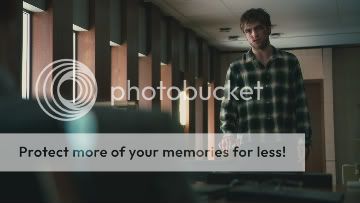
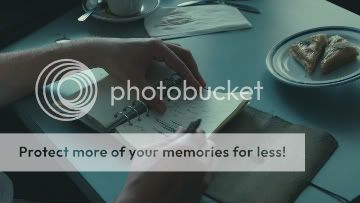










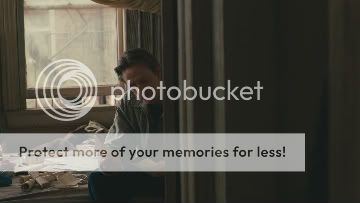







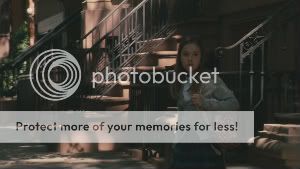


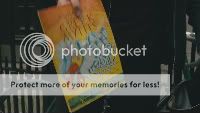
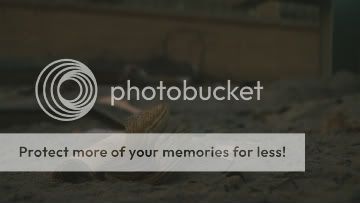












 Regards sur le film Remember Me
Regards sur le film Remember Me ...Remember Me Saturday
...Remember Me Saturday ...Spunk Ransom
...Spunk Ransom ...Let Me Sign
...Let Me Sign ...Thinking of Rob
...Thinking of Rob ...Emilie de Ravin Fan
...Emilie de Ravin Fan ...Dedicated to Emilie Blog
...Dedicated to Emilie Blog ...Gregory Jbara Official Web Site
...Gregory Jbara Official Web Site ...Respect Robert at LetMeSign.com
...Respect Robert at LetMeSign.com